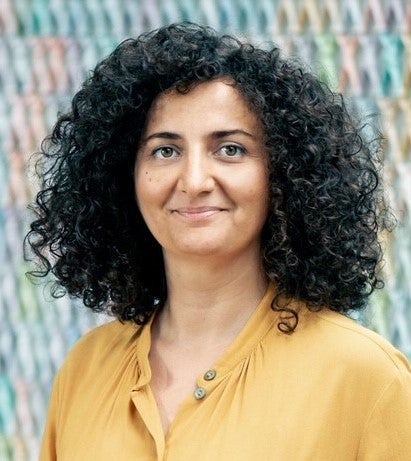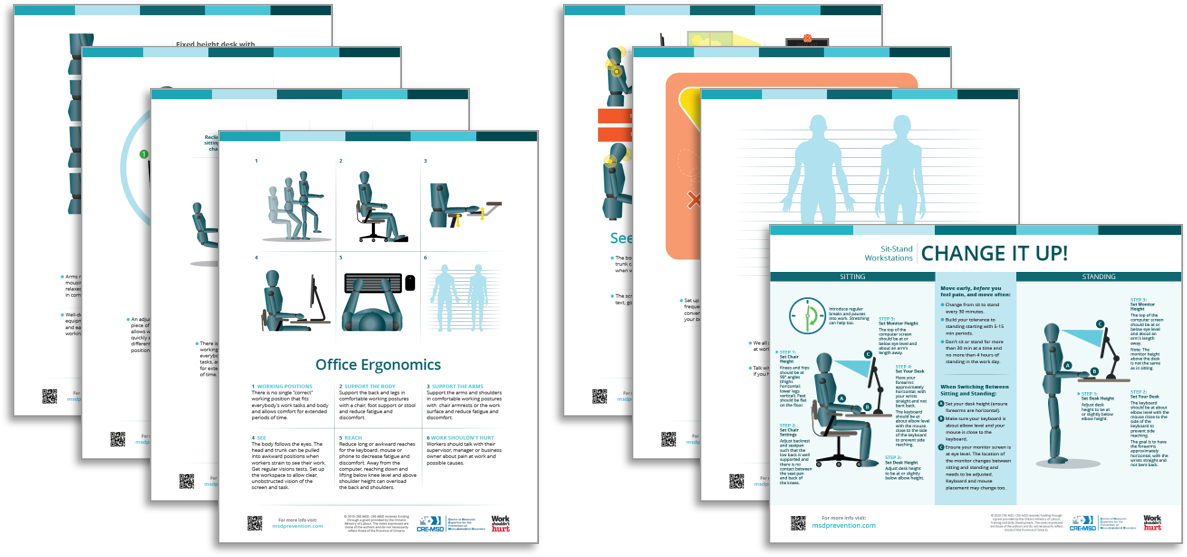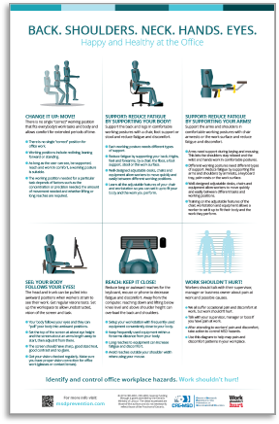Webinar series
The COVID-19 pandemic has forced a rapid change in the way we work and the need to support workers at the office and at home. Adjustments have been made including work hours, equipment, physical space layout and work format, be it virtual or masked in-person. The temporary remote work instituted in March of 2020 resulted in using makeshift workstations at kitchen counters, spare bedrooms, and living rooms, a situation that continues for many to persist over 1.5 years later.
Join CRE-MSD, IHSA, PSHSA, WSPS, and OHCOW during Global Ergonomics Month in October for this free webinar series featuring six international experts. The series will explore flexible/hybrid office environments and returning to on-site office workspaces, how these can be supported, the impact on health, moving beyond the constraints of individual productivity, and a look at what a true “virtual” workspace will look like in the future.
This five-part webinar series will examine research on how pivoting imposed by COVID-19 health hazards has impacted workers and challenged the health and safety support system’s ability to ensure ‘work shouldn’t hurt’. It will assist organizations to learn about and help prevent physical, cognitive and psychological challenges related to remote work practices implemented during COVID-19.
Other webinars in the series
Expanding the Bounds of Seated Virtual Workspaces
In this webinar
The pandemic has revolutionized the paradigm of office work and how we think about remote work and employees’ workplace needs. Post-pandemic workplace strategies vary, with some organizations attempting to bring employees back to on-site office work, others continuing remote work as a new standard, and some choosing a blend of both referred to as the hybrid approach.
What employees perceive as expected consequences of different extents of remote work in this hybrid work era will be explored. This webinar examines perceived and expected challenges and opportunities, based on focus group discussions conducted with public service employees in Sweden. The takeaways will have relevance for staff managers and employees, ergonomists and human factors experts, and others including workplace designers, architects, and facility and corporate real estate managers.
For assistance, please contact Betina Butler at bbutler@uwaterloo.ca.
About the presenter

Dr. Maral Babapour is a design & human factors researcher at the Institute of Stress Medicine at Region Västra Götaland in Sweden. She is also affiliated with the profile area of Healthy Work Systems and Ergonomics at Chalmers University of Technology. Maral’s research primarily applies a user-centred design methodology to study the complex, multi-dimensional relationship between people and technical systems. One of Maral's major interests is to understand how new workplace solutions - covering new products, services, systems, ways of working or environments - are adopted in everyday worklife. Her current projects are focused on activity-based flexible offices, hybrid and remote work, and using virtual reality for knowledge work.
Other resources
We encourage you to take advantage of CRE-MSD resources such as the Office Quick Start Guideline, a collection of posters/infographics that provide basic information and quick workplace fixes for preventing MSD while performing office work. This free resource is part of the MSD Prevention Guideline for Ontario.



Disclaimer: CRE-MSD receives funding through a grant provided by the Ontario Ministry of Labour, Training and Skills Development (MLTSD). The views expressed are those of the presenters and do not necessarily reflect those of the Centre nor of the Province of Ontario.